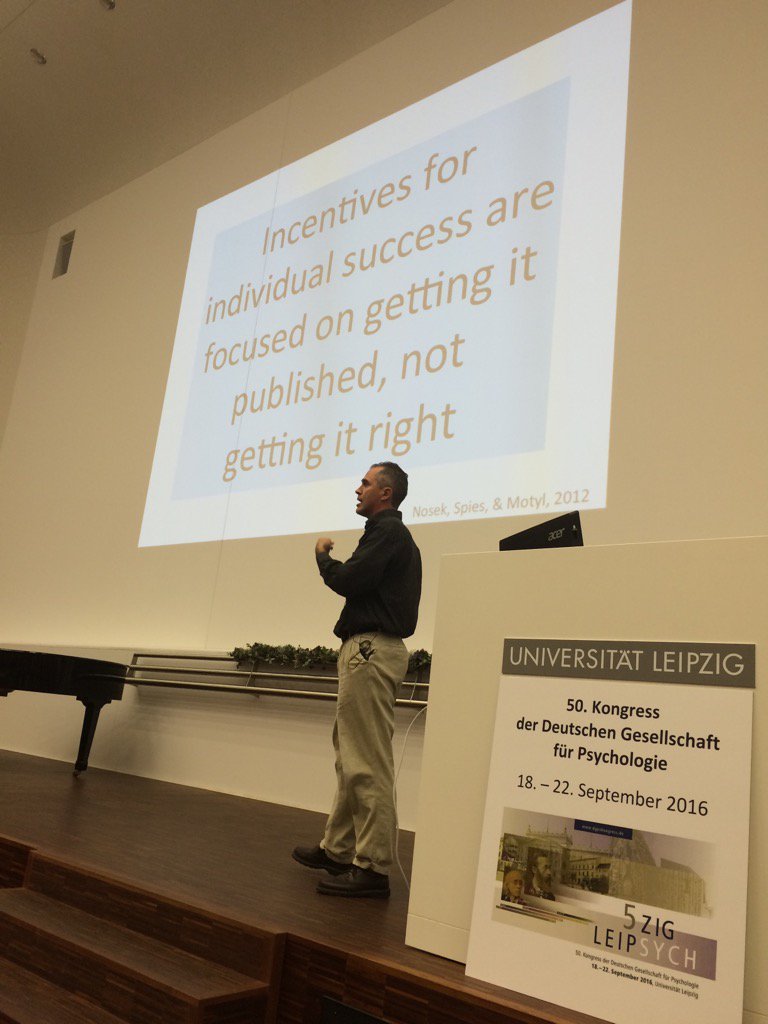I just attended the biannual conference of the German society of psychology (DPGs) in Leipzig; open science was a central, albeit not undisputed topic; a lot of interesting related twitter discussion.

image source: Felix Schönbrodt
Interestingly, a strong voice of German scientiests uttered their concerns about being scooped if/when sharing their data (during the official meeting of the society). This being said (sad), the German research foundation (DFG) has updated its guidelines now stressing (more strongly) that publicly funded projects should share their data, with the rationale that the data do not belong to the individual scientiest but to the public, as the public funded it (I find that convincing). Finally, Brian Nosek had a key note talk, where he vividly argued in favor of open science; I found the talk very inspiring.
Anyway, I do not want to discuss the “why” and “if” but rather the “how” in this post, giving some recommendations. Or more precisely, what I personally do at the moment for living up to open science. The following list is by no means innovative, impressive, it just presents my current thinking and doing:
- Share you code, e.g., on Github
- Spread the word (blog your thoughts), Github and Jekyll provide a cool tool
- Sign the (or one of the) research transparency initiatives for reviewers, and live up to it
- Publish your data, e.g., on Open Science Framework (OSF)
- Publish a data paper, e.g., here, and get a citable paper out of in it, including a doi
- Checkout whether your pay-walled journal accepts preprint/postprint open access (many do!) (BTW: Here’s a blog post explaining differences between preprints and postprints, and what your rights are)
- Put your preprint/postprint on a repository, eg., OSF or SocArXiv
- If you are editor or faculty head: promote open science in your environment
- Preregister your study, eg. on OSF
- Learn more about good data (management/analysis) practices, e.g, on OSF
- Connect on social media, e.g, Twitter hashtag
#openscience - Consider becoming an ambassador of open science at COS
Peronally, I put my code on Github, and my data and preprints to OSF (and other stuff, such as presentations, too). And I blog and twitter on that (among other topics).
The list above is surely not exhaustive, nor it is definitely mandatory to submit to each item. I am to still learning and getting more into it.
I think we should consider that it may well be that our research results are mostly false, see Paul Meehls seminal paper(s), and of course the results of the Reproducibilty Project Psychology, among many others sources.
Hopefully, we will not drift astray in emotional discussions on “research parasites”, “methodological terrorists”, or “cyberbullies”, but focus on what is constructive for our field. One could argue that the only question that counts is “How do I contribute?”.